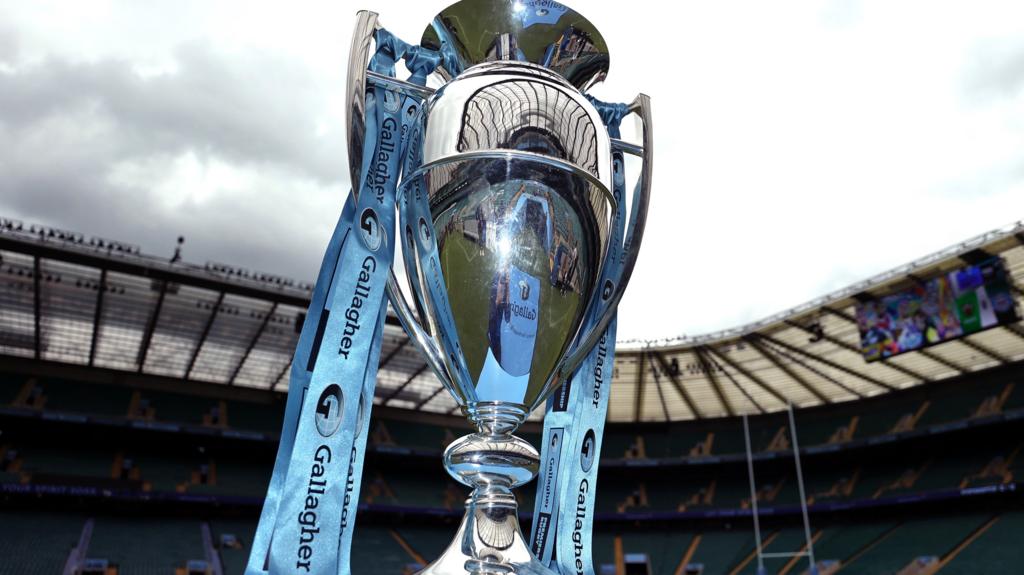Seven months after clinching their fourth Premiership title in five years with a 37-34 victory over Exeter, Saracens faced relegation to the Championship due to repeated salary cap violations.
Andrew Rogers, the Premiership’s salary cap director, relies on a sophisticated network rather than a dedicated hotline.
“There’s no single ‘red phone’,” Rogers clarifies. Instead, information regarding potential breaches of the £6.4m player salary cap arrives through various channels.
Whistle-blowers play a key role, utilizing more subtle methods to report suspected violations.
“With nearly 20 years in rugby,” says Rogers, who previously established the agent registration scheme at the RFU, “it’s a social sport, and a trusted network of informants is invaluable.”
“Information gathering is often informal. The process of assessing its credibility is crucial to our work.”
The Premiership’s salary cap, implemented in 1999, aims to maintain competitive balance and league sustainability.
However, for wealthy owners striving for success, it can prove a significant obstacle.
Saracens’ 2020 salary cap breaches, which fueled their dominance and star-studded roster, led to legal challenges claiming the cap’s unenforceability. These challenges were dismissed, resulting in Saracens’ relegation and expanded powers for Rogers.
‘The most remarkable scandal in the domestic game’
“The Saracens case provided a significant opportunity to strengthen the entire system,” Rogers notes.
His investigative arsenal includes a vast database of information.
Player contracts, image rights agreements, and employment details must be submitted within 14 days of signing.
Annual declarations, signed by senior club officials, confirm player compensation. Players also submit annual returns detailing earnings, living arrangements, business interests, and banking information.
Rogers and his team possess complete access to club accounts over the past five years for audit purposes.
Numerical data undergoes rigorous cross-referencing with supporting documentation.
Rogers conducts over 40 interviews with league officials and players, delving deeper into financial matters and uncovering inconsistencies.
However, he acknowledges the limitations of official records.
“Undeclared payments often occur ‘off book’,” he explains. “While audits are essential, informal communication via WhatsApp or email is harder to track.”
“The 2010 Melbourne Storm case in Australian rugby league, with its significant salary cap ‘rort’, highlighted the use of fabricated emails, external to conceal breaches.”
Investigations now analyze players’ and officials’ electronic communications for terms indicating illicit payments.
“Analyzing messages between agents, owners, and players offers valuable insights,” Rogers emphasizes.
Sometimes, suspicious activity triggers investigations without external tips. Market value analysis of contracts plays a key role.
“I assess contract value against market rates for a player’s age, position, experience, and international status,” Rogers explains. “Our salary database allows for detailed comparisons.”
Many clubs operate well below the cap. Last year’s champions, Northampton, even advocated for a reduction.
Bath, however, appear closer to the limit, boasting a deep and talented squad further strengthened by the summer signings of Henry Arundell and Santiago Carreras.
Newcastle’s director of rugby, Steve Diamond, praised their financial management this season, while Bristol’s Pat Lam highlighted Bath’s significantly higher spending.
Rogers emphasizes open communication with all 10 Premiership clubs to avoid stricter penalties, including relegation and title revocation.
“Many clubs maintain near-daily contact, seeking guidance to ensure compliance,” he notes.
Strategic contract structuring, such as backloading payments, and utilizing homegrown and international player credits, allow clubs to optimize spending.
“Modern governance involves active support and collaboration,” Rogers states. “It’s not enough to simply set rules; proactive monitoring, communication, and continuous system refinement are crucial.”
Friday’s meeting with representatives from 20 sports, including major leagues from football, American sports, and motor racing, will allow for valuable knowledge sharing.
This includes Samuel Gauthier from France’s Ligue Nationale de Rugby, whose recent investigation resulted in a €1.3m fine for Toulouse, external for undeclared financial assistance to Melvyn Jaminet.
Melvyn Jaminet joined Toulouse in 2022 before moving to Toulon the following year.
Rogers and Gauthier, who meet regularly, are close to establishing a data-sharing agreement to facilitate cross-league contract comparisons.
However, the true extent of undetected financial manipulation remains unknown.
“Our system is robust,” Rogers asserts. “The tools we employ—tax returns, bank statements, electronic communications, and thorough investigations—significantly mitigate risk.”
“While complete certainty is impossible, the system is strong.”
The battle against financial irregularities involves defensive measures, innovative strategies, technology, communication, and human expertise, mirroring the complexities of the game itself.
Listen to the latest Rugby Union Weekly podcast

